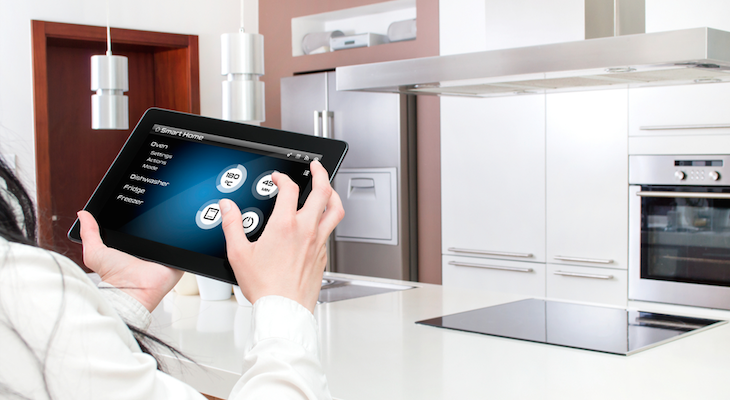The Internet of Things, which describes objects and devices that are connected to the internet via Wi-Fi, is more and more prevalent in our everyday lives.
As we become increasingly reliant on our smartphones, computers, tablets and virtual personal assistants like Alexa and Siri, we are witnessing non-traditional devices gaining similar capabilities. Everything from a car to a thermostat, a sleep apnea machine to a slow cooker, can be connected to the internet and send and receive data.
The future of the Internet of Things
In 2017, we will only continue to see the Internet of Things advance and become essential to how we function and run a business.
For example, James Paine of Inc.com wrote that a smart Nest thermostat could connect to a Fitbit or Apple Watch and cool down your home when you come back from a run.
Our devices will not only become smarter, but we will also be able to communicate with them more easily. Ken Herron, chief marketing officer of Unified Inbox, said that when he recently attended the Consumer Electronics Show (CES), “There wasn’t one new product being launched that didn’t include the capability to talk to it (i.e., remotely control it) and to have it talk back (i.e., send alerts and notifications).”
Herron noted a trend in which companies are making it possible to talk to appliances through Amazon Echo. Some businesses, however, are leading the pack and looking past voice communication entirely. Instead, they’re developing ways to talk to devices through artificial intelligence (AI) and messaging.
“I’m seeing this already with the top global manufacturers,” he said.
Related: How the Internet of Things Companies are Changing Startups
How businesses can adapt
The Internet of Things isn’t just changing consumers’ lives. It’s also reconfiguring how businesses function, giving them more power than ever before.
With the growing influence and prominence of the Internet of Things comes a plethora of data. Businesses can use this data to find out more information about their customers, provide them with improved experiences and target them more accurately with product advertising as well as content.
Businesses will need to figure out how to collect this data, where to store it and what to do with it. It’s not just enough to have the data; you have to be able to make sense of it and apply it to business processes. Keep in mind that your customers may not be completely comfortable with you taking in so much of their data, so make your collection policy clear and don’t share data with outside vendors.
According to Forbes’ Jayson DeMers, the Internet of Things will also expand remote work possiblities. Typically, remote workers are limited to their laptops. However, if a cash register or machine on the factory floor is connected, employees might be able to work from the comfort of their living rooms. DeMers wrote that this can lead to an increase in productivity and happiness amongst employees.
Related: Sign up to receive the StartupNation newsletter!
Your business will also need to keep up with the speed in which customers can order your products. As DeMers pointed out, if customers can swiftly and easily order a product through voice recognition, they expect it to be delivered fast and without any problems. You’ll have to ensure that products are sent quickly and the customer experience is seamless.
The Internet of Things is only going to become more advanced in the years to come. For business owners, it will be vital to stay afloat of any changes, and make sure the technology is up to par on your end, too.






